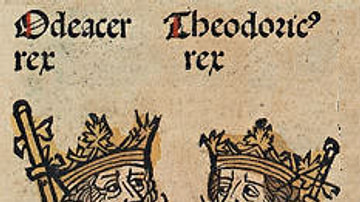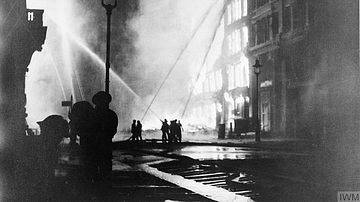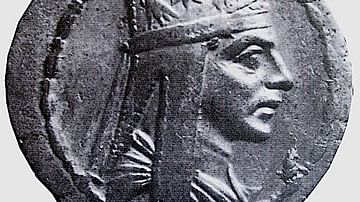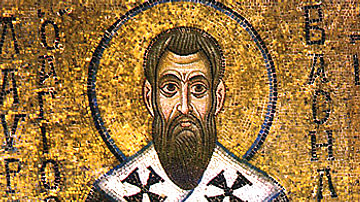Search
Search Results

Definition
Catherine the Great
Catherine II of Russia (Catherine the Great) was empress regent of Russia from 1762-1796. She was born in Prussia to Prince Christian August of Anhalt-Zerbst (1690-1747) and Princess Johanna Elisabeth of Holstein-Gottorp (1712-1760), and...

Definition
Theodoric the Great
Theodoric the Great (l. c. 454-526 CE, r. 493-526 CE, also known as Flavius Theodoricus) was the king of the Ostrogoths who, at the encouragement and direction of the Roman emperor Zeno, invaded Italy, deposed King Odoacer, and ruled over...

Definition
Zoroastrianism
Zoroastrianism is the monotheistic faith established by the Persian prophet Zoroaster (also given as Zarathustra, Zartosht) between c. 1500-1000 BCE. It holds that there is one supreme deity, Ahura Mazda (Lord of Wisdom), creator and sustainer...

Article
The Mystery of the Great Sphinx
Buried for most of its life in the desert sand, an air of mystery has always surrounded the Great Sphinx, causing speculation about its age and purpose, method of construction, concealed chambers, role in prophecy, and relationship to the...

Image
Balham Bomb Damage, London Blitz
A photograph showing bomb damage in Balham during the London Blitz (1940-1). October 1940. A bomb hit the Balham Underground Station, killing 68 people. The bus then drove into the crater, a frequent consequence of blackout conditions. (Imperial...

Image
Firefighters in the London Blitz
A May 1941 photograph showing firefighters in Queen Victoria Street during the London Blitz. (Imperial War Museums)

Definition
Anne, Queen of Great Britain
Anne reigned as Queen of England, Scotland, and Ireland from 1702 and then, following the 1707 Act of Union, over a united kingdom as Queen of Great Britain until her death in 1714. The last of the Stuart monarchs, Anne's reign witnessed...

Article
Ten Great Stupas from Around the World
A stupa is a reliquary containing the remains (relics) of an individual associated with great spiritual power and insight, most often (since the 3rd century BCE) with the Buddha (l. c. 563 - c. 483 BCE). The form, a hemisphere topped by a...

Definition
Tigranes the Great
Tigranes II or Tigranes the Great ruled as the king of Armenia from c. 95 to c. 56 BCE. Expanding in all directions, at its peak, Tigranes' Armenian Empire stretched from the Black Sea to the Mediterranean. Not before or since would Armenians...

Definition
Basil the Great
Saint Basil (c. 330 - c. 379 CE), also known as Basil the Great and Basil of Caesarea, was a bishop of Caesarea in central Asia Minor who staunchly defended the church against the 4th-century CE heresy of Arianism. Basil's writings on monasticism...